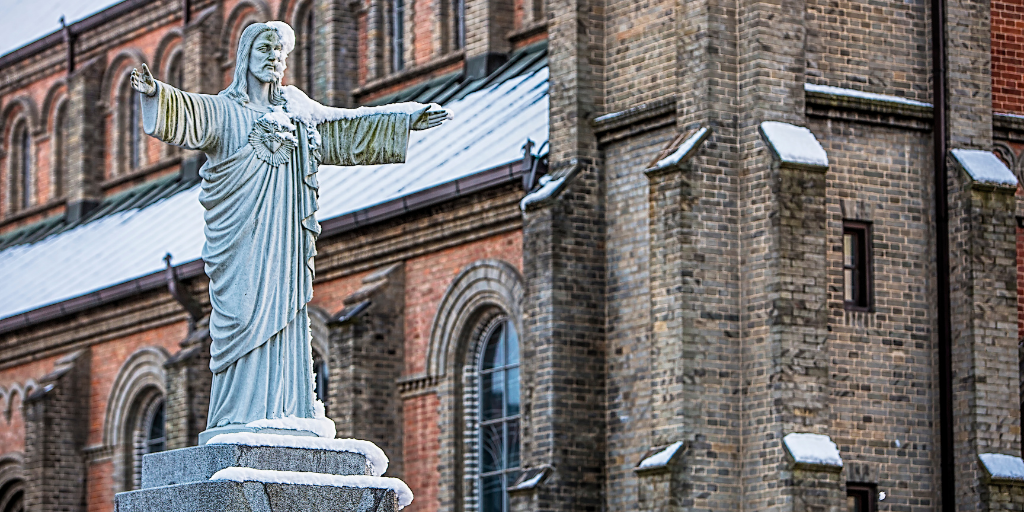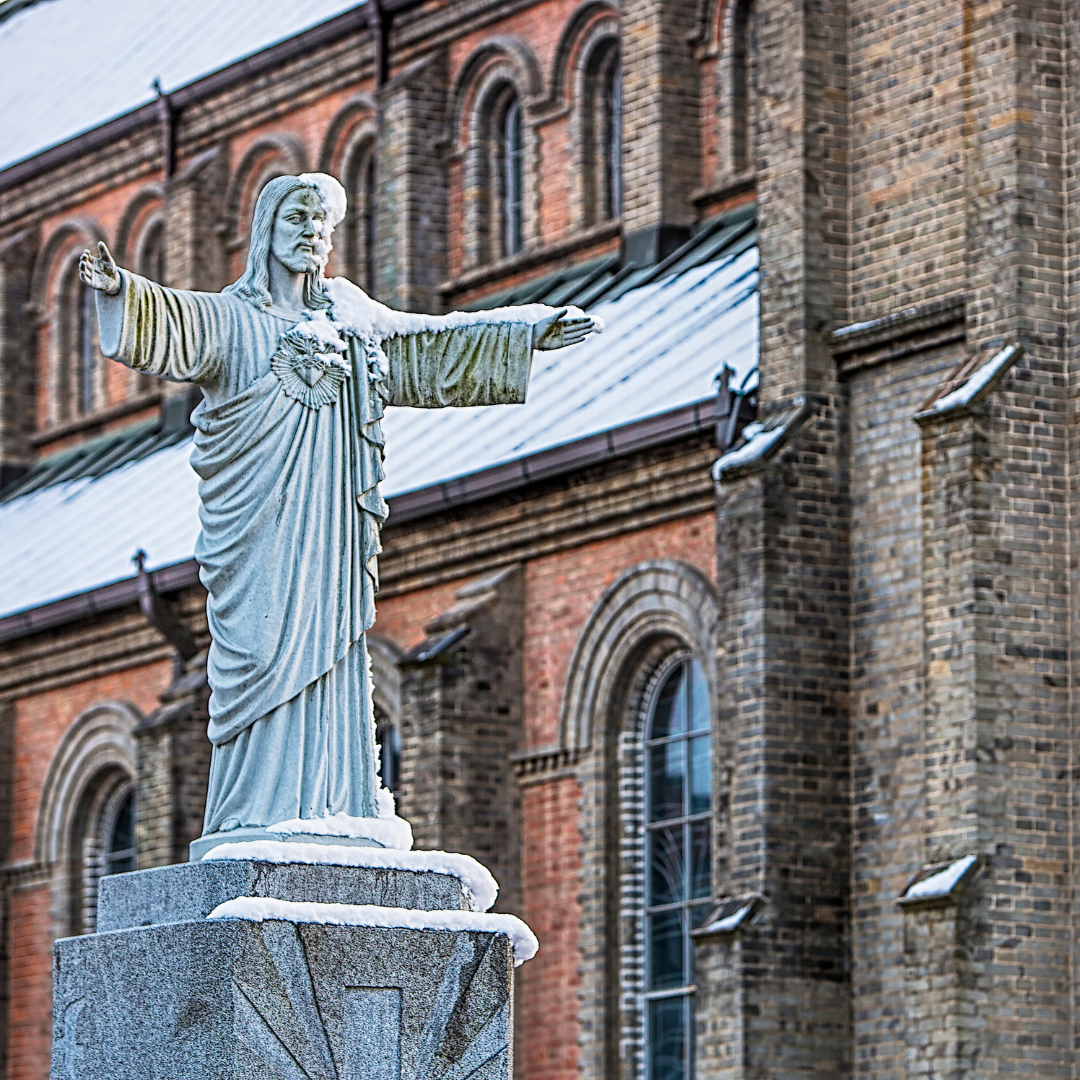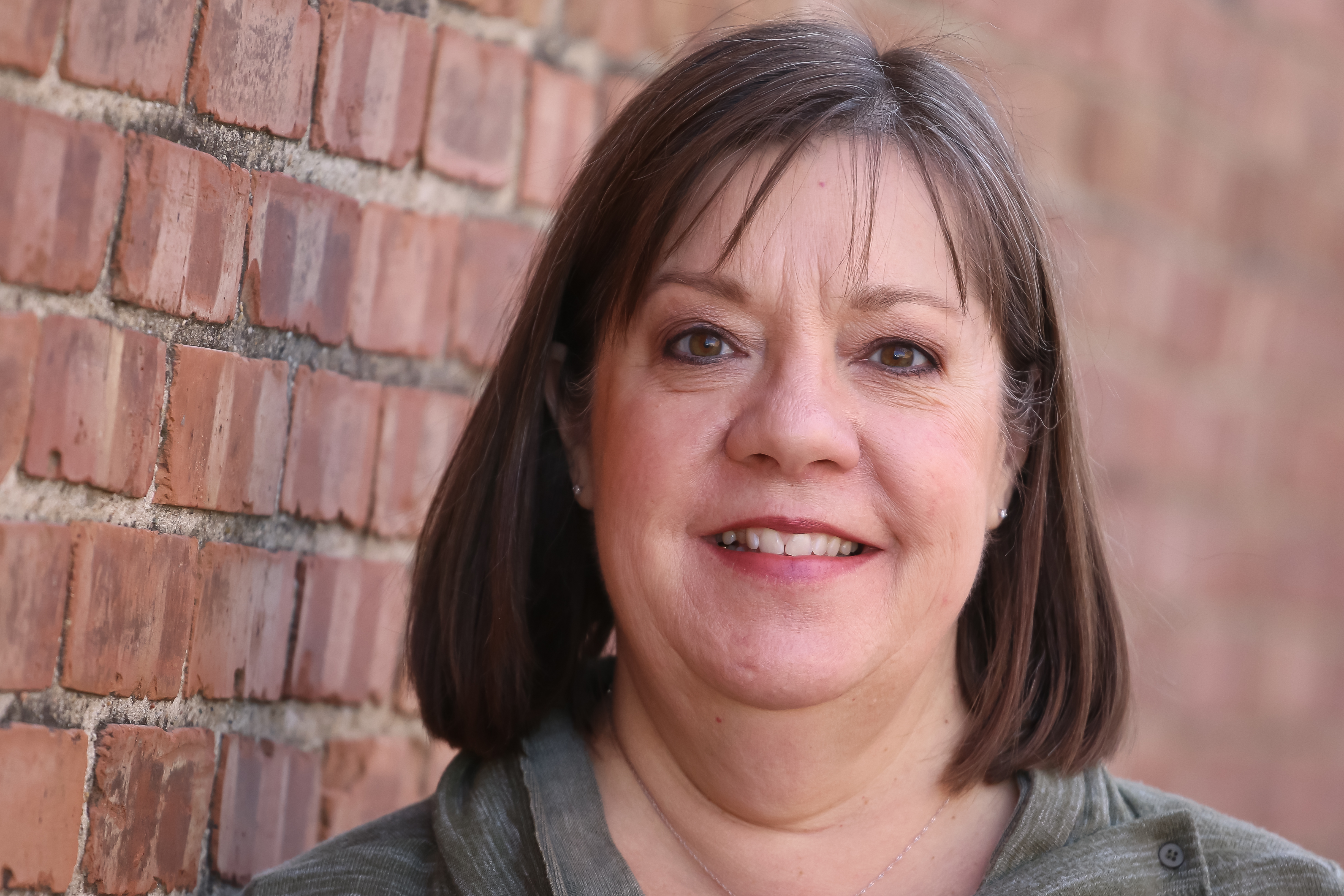
Julie Storr shares a reflection on the Collect for the Mass for the Second Sunday in Ordinary Time.
This week we Lectio the Liturgy with the Collect for the Second Sunday in Ordinary Time.
Almighty ever-living God, who govern all things, both in heaven and on earth, mercifully hear the pleading of your people and bestow your peace on our times. Through our Lord Jesus Christ, your Son, who lives and reigns with you in the unity of the Holy Spirit, God, for ever and ever.
Let’s first spend some time with the “Who” because it has information we’re going to need to know later.
In the prayer, we address God, who governs, or rules, all things, both in heaven and on earth. In the Latin translation of the prayer, the word used for both is “simul.” It means at the same time. Because God rules all things in heaven and on earth at the same time, there is nothing that come as a surprise, he has it all in hand.
When we pray the Lord’s Prayer (or the Our Father), it’s easy to separate heaven and earth. “Thy will be done on earth as it is in heaven.” However, God rules both simultaneously, earth isn’t behind. God’s ruling includes his perfect timing.
Another curiosity for me was that heaven is listed first. Why isn’t it like the Lord’s Prayer where earth is listed first? In scripture, are some examples of heaven being listed first, Genesis is one and Colossians is another. In Colossians 1:16 we read,
For in him all things were created: things in heaven and on earth, visible and invisible, whether thrones or powers or rulers or authorities; all things have been created through him and for him.” (NABRE)
God created ALL things and ALL things are still governed by Him. Have you ever looked up the definition of all? I did. I love the first definition in Vine’s Dictionary. There, all is defined as “radically means ‘all.’” All means all. All, everything in heaven and on earth is ruled by God.
What we ask God to “Do” this week is to hear our pleading and bestow peace. Notice, it’s not our peace, nor is it the world’s peace. We are asking God for His peace.
Jesus gives us His peace in John 14:27:
“Peace I leave with you; my peace I give to you. Not as the world gives do I give it to you. Do not let your hearts be troubled or afraid.”

How many times in the last two years have we been troubled and afraid and have pleaded to God for peace. We’ve maybe not thought about which kind of peace we wanted, the world’s peace, or the peace of Jesus. Strong’s concordance defines the peace in John 14 as one, quietness, rest. Why would “one” be listed in the definitions? Because God’s peace is his gift of wholeness. God’s peace is lasting, dependable, and makes us whole.
We can look to Jesus for examples of this peace. Jesus was never troubled or afraid, he never fell apart or lost his confidence. Jesus understood that his Father ruled heaven and earth. Jesus had complete trust in the plan of the Father. Do we have that same level of trust?
A wise priest once told me that my peace could be measured by the amount of trust I have in God. While we do call out to God and beg for His peace, we must cooperate with God and remember that all things, ALL things, are governed by Him.
This week as we Lectio the Liturgy, what do you think about advice of measuring your peace by the trust you have in God? Have you ever thought of peace as being a gift of wholeness? Do these change your definitions of peace?
Thanks for praying with me.
Copyright 2022 Julie Storr
Image: Canva Pro
About the Author

Julie Storr
Julie Storr surprised herself when she went from “never ever going to be Catholic” to a lover of the lectionary. Her thirst for the Faith is never quenched and she is always surprised at the depth of the relationship with Christ that one can find in the Catholic Church. She and her husband live in Pocahontas, Iowa. Visit her website at LectioTheLiturgy.com.


.png?width=1806&height=731&name=CatholicMom_hcfm_logo1_pos_871c_2728c%20(002).png)
Comments